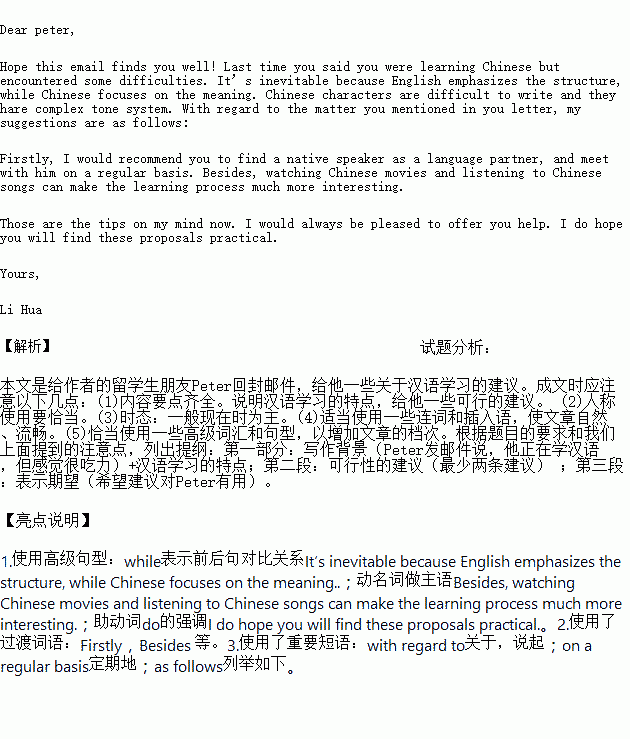题目内容
假定你是李华,你的留学生朋友Peter发邮件说,他正在学汉语,但感觉很吃力,请求你给予帮助。请给他回封邮件,内容包括:
1. 举例说明汉语学习的特点;
2. 提供一些可行的建议。
注意:
1. 词数100左右;
2. 可以适当增加细节,以使行文连贯。
____________________________________________________________________________________________
____________________________________________________________________________________________
____________________________________________________________________________________________
____________________________________________________________________________________________
____________________________________________________________________________________________
________________________________________________________________________
练习册系列答案
 阅读快车系列答案
阅读快车系列答案
相关题目


 Everyone who takes part in it will also receive a free pass to enter one school activity this year.
Everyone who takes part in it will also receive a free pass to enter one school activity this year.